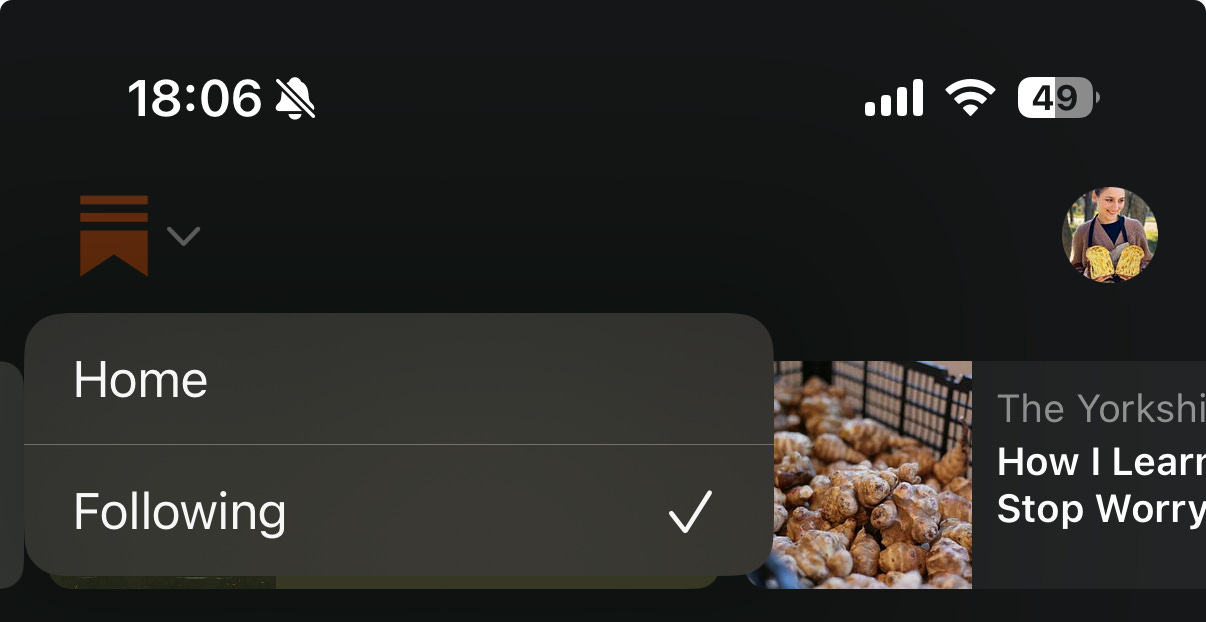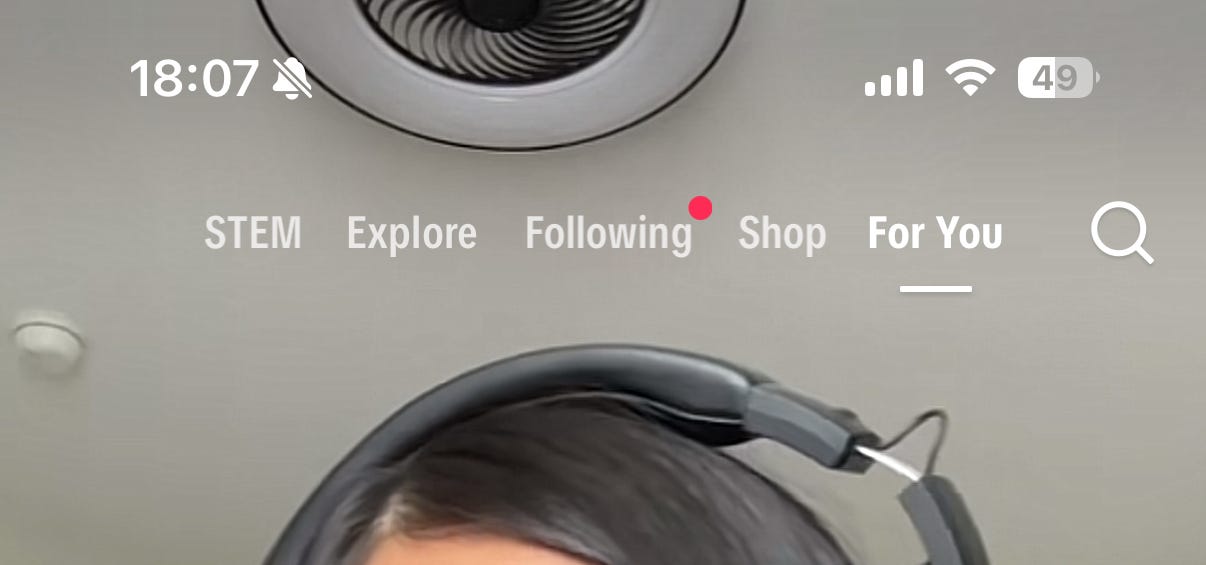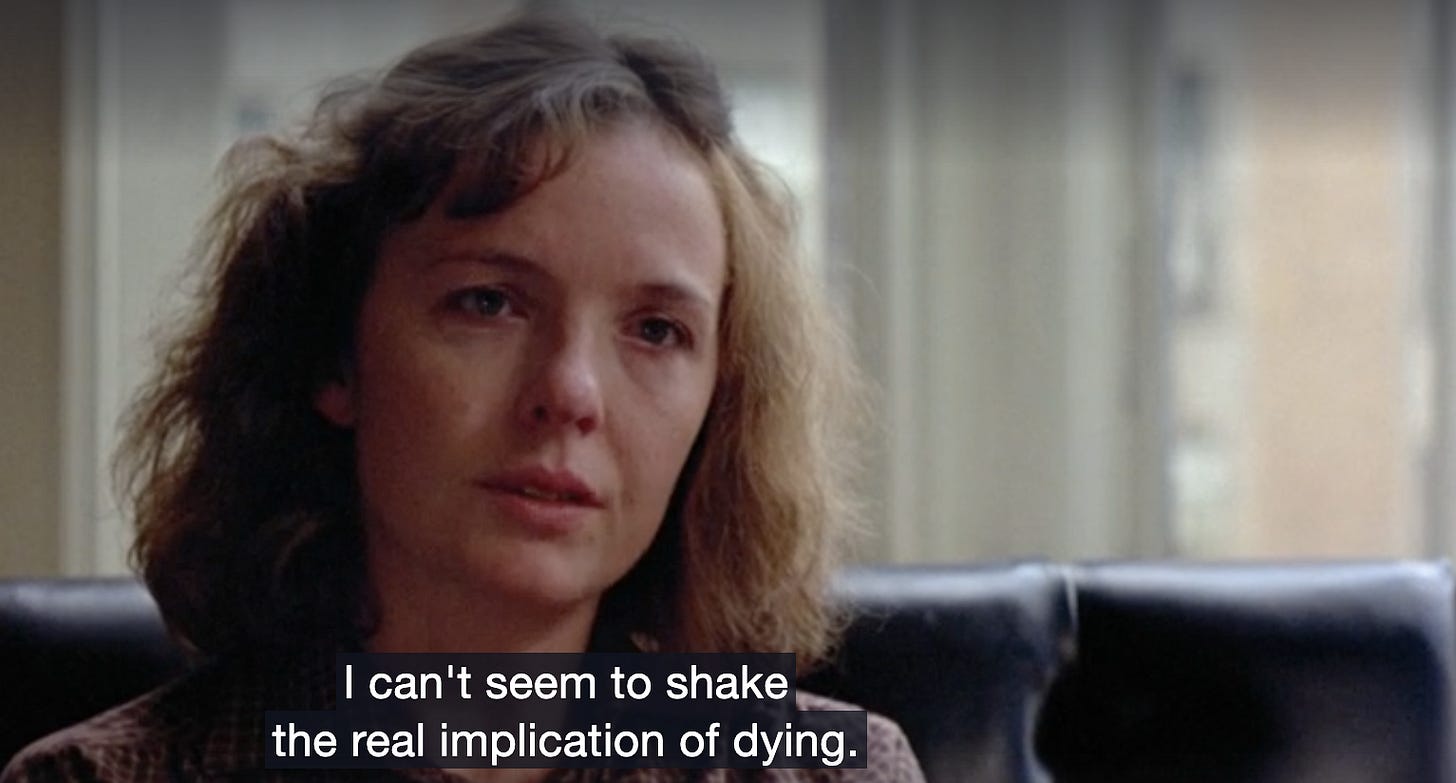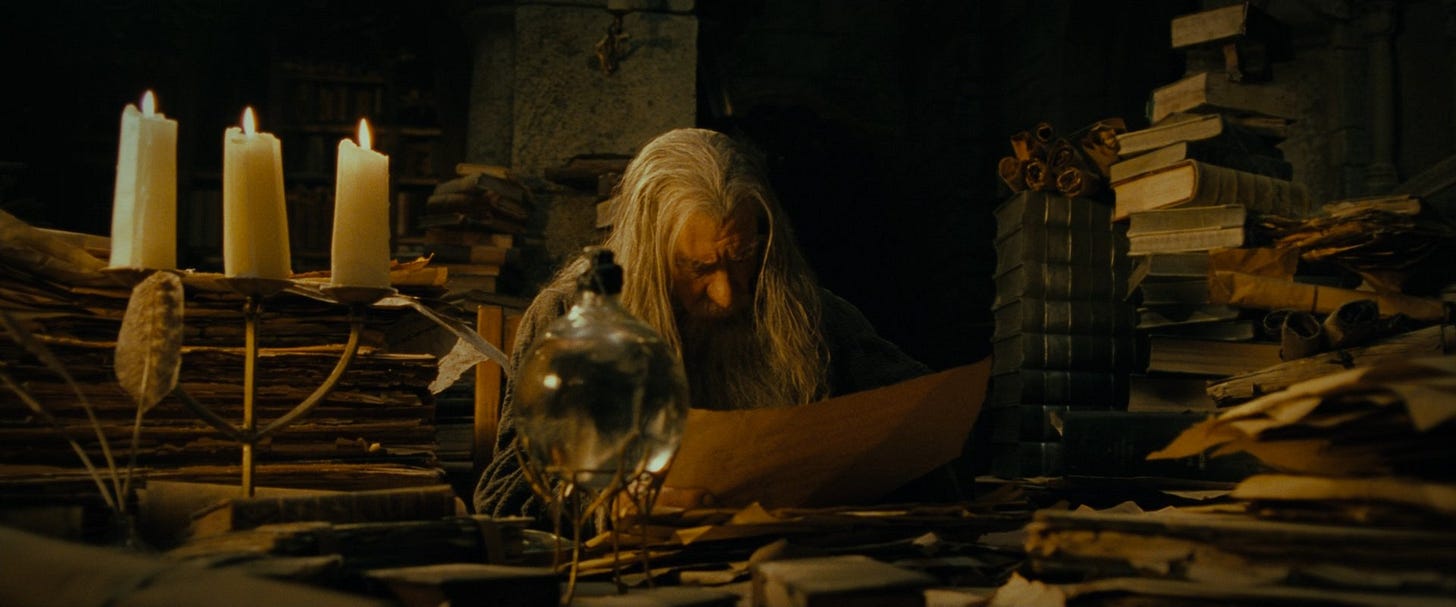Can Browsing Save the Internet?
Finding Destinations Beyond the Scroll
Please consider becoming a paid subscriber. It’s only $30 a year. That’s like one shitty cookbook! Upon becoming a paid subscriber you will receive a copy of my Burnt Basque Cheesecake Cookbook Zine! Or you can buy a copy here for only $2.
It is not at all surprising that somebody in their late 30s is writing about the act of browsing the internet.
After all, aren’t we the generation that spent the most time browsing, exploring, and just hanging out on the web? It’s a tired truism by now, but we were born analog and grew up digital. Gen Z is the first generation to grow up with a pervasive and truly internet. We, as their older cousins, spent our early teens and formative years browsing the web. We were the kids in the hall, not quite understanding the places we were running through but adaptable and curious. The super information highway. We were dealing with cassettes, reels, magnetized spinning things, clunky chips and maybe, after so many gates to pass through, navigating some message boards and web rings before the apps and social media platforms took over. We were there, but as kids, as AOL opened the gate and we were early adopters of that big bang in the web’s development.
Message boards and all sorts of weird personally crafted websites were out there. The usenet, the web, the internet, was online and accessible for everyone—not just the incoming freshmen every September and capable adults who could afford the super expensive home computer. Usenet was open to everyone and 1993 would be referred to as Eternal September. Après moi, le déluge, and I think we were the flood.
Popularity without mainstream conglomeration.
You might say we took to it eagerly, effortlessly, like ducks to water. Maybe the dark waters of it all mirrored something back at us. It was new, culturally and technologically, but we filled it. We weren’t passengers on the water, we were the waters rising. We explored with unrelenting curiosity unconcerned with our torrential force or the established norms of that place. Curation wasn’t a term used for the web back then, not that I recall. There was an aura of egalitarianism.
Let me ask you. How often do you really think about being online, like really being online? With every mundane object suffering from networked WiFi and screens, apps to scan glyphic codes to read menus, multi factor authentication, and an Orwellian surveillance infrastructure of cash back points and cookies to feed us what we ought to want, it has become normal to be chronically online and connected.
But when was the last time you were, you know, on the web or internet? When was the last time you browsed? Think about your last experience of discovery, forming connections and finding community or relevance.
Think about even something as basic as reflecting on what your favorite internet browser is. What is your internet browser of your choice? Not just search engines. Tell us in the comments. Is it Internet Explorer (which I believe has been replaced with Microsoft Edge), Safari, Google Chrome, Firefox? The list goes on. It’s an important choice, it feels very personal and some of the options feel outright icky.
I used to be constantly on the web looking for things and discovering stuff in a way that, looking back, felt deeply personal and intentional but now oddly removed. There was a distance and anonymity. In some ways it was archeological, in other ways it was like stumbling into a mom & pop shop, but it always felt connected as you made your way along your own path. Like picking up a book after book while scouring the aisles of a library or archive, reading one page, putting the book down, and picking up another, and so forth. The vastness felt vast not because there were so many items, but because there was a potential for newness. The newness of discovering a book on the shelf but also the newness of someone writing a new book for that shelf at any time. It never felt linear or numbing. Gratification wasn’t an immediate concern if at all.
Gradually our internet browser use as a society began to decrease, year by year, we spent less and less time on our computers browsing the internet and much more time on our phones scrolling on social media; first we had Instagram, then TikTok, and now Substack. There are less places to be or go to online, like a town drying up. We are starved of third spaces online just as we are in the real world.1
Instead, the apps and internet of today is commodified for instant gratification. There is no loitering or hanging out, it’s get in and get out, if you’re buying something or giving away data. Mall rats had to go. The corporatization of the internet was complete. Scrolling replaced browsing.
Our decreased use of internet browsers gradually led us (or played a role in leading us) to de-prioritizing the act of browsing the internet—the act or process of searching, discovering, and connecting.
The linear nature and apparent ease of scrolling became the modus operandi of being, engaging, or existing online.
As embarrassing as it may be to admit, I became radically aware of this shift in my own life just the other day, as I was laying looking at my new giant bookshelf full of books and other physical media. It really hit me that I went from spending countless hours scouring the internet on my computer to spending hours of my daily existence scrolling on my phone.
The shift began with the likes of AOL Instant Messenger (AIM), MSN Messenger, and later Facebook and MySpace, the computer and internet browser predecessors of social media apps we now have on our smartphones. Still though, those places you had to sit down and connect to the internet. You had screaming modems, you tied up the phone line, usage was metered in purchased minutes. Facebook, MySpace, and who can forget LiveJournal were an evolution of the personal webpage and web rings and of IRC (Internet Relay Chat) and usenet. They were a streamlined and an integrated way to share something of yourself, social browsers, before they became honey pots of advertisements and data collection.
Nowadays even newsletter hosting platforms such as Substack are focusing all their efforts on making sure that people download and read newsletters (or what they are much more commonly referred to as “Substack posts”) on their app, not people’s inboxes. The introduction of Notes was part of this initiative to get people to spend more and more time on the Substack app. Why this pressure on getting folks to use their app? Scrolling = money. It is that simple.
When you open the Substack app, you are greeted by something familiar: the Home and Follow on Substack is reminiscent of TikTok’s FYP (for you page) and Following tabs. Substack is implementing a familiar structure enabling new Substack app users to scroll endlessly on Substack looking for that next great read or idea. What is most likely to happen is you save an article you will never read just as you save recipes on TikTok you never make. They want our attention, our data, and of course our money.
Furthermore, social media platforms and their influencers started to slowly become the internet browsers themselves. While we, the users, gradually traded browsing for viewing. I suppose that viewership is the common metric for screens, and maybe this relationship is a sign of the rising tide of popular acceptance of “being online”. Radio, television, all these coming before and invading our home space become part of the home and for many these things define the home space.
We become passengers, relinquishing our agency to unseen drivers and ever more streamlined, manicured and curated highways.
We scroll from one TikTok to the next in the hope that we will come across something that resonates with us—maybe even something that motivates us or gives our lives meaning. It’s just looking out this window or the other. You can’t actually roll down the window and touch it—it’s already in the rear view as new scenes scream by.
Unfortunately no amount of scrolling will get us closer to figuring out what we are actually searching for or in need of. Making art, going to therapy of whatever form, looking at art, or being active out in nature have much higher odds at helping humans navigate the challenges of life and existential dread that comes with being alive. You at least get to participate even if it results in dirty hands, dust in your eye, and a sunburn.
Our agency is key in making being online a fulfilling and human experience. I think this is why scrolling is so numbing, when you scroll you lose the human aspects of engaging with the online world where we connect ideas and with others. You turn off making decisions (consciously and subconsciously) for the ease of stumbling upon something good. And just like the lotto you can hit the scrolling jackpot and find something creative and in alignment with what you are looking and longing for, but more commonly that doesn’t happen.
Scrolling has no destination. It is meant to go on forever.
The autopilot nature of scrolling tends to hijack our attention, the goal is to simply be on our phones rather than derive actual purpose or joy from the content you are viewing while scrolling.
Scrolling is Sisyphus in a hamster wheel. No mountain.
Training your algorithm can help improve your odds, unfortunately even if you do spend a lot of time “training” your algorithm, the act of scrolling still has no destination.
Becoming aware of the fact that scrolling needs to be treated and conceived of differently from how we use to engage with the online world is simply a great starting point. Not to mention we should all be setting timers each time we scroll.
That’s it folks.
My hope is that reading this piece may help someone snap out of scrolling autopilot.
Maybe reading this short essay is enough for someone to put their phone down and realize that there are alternative ways of being online. And newish habits can start to form. Like opening your computer or using a computer at your local library to browse the internet. Maybe this article will help someone remember the joy they derived from browsing the internet, helping them get one step closer to developing a more content and fulfilling relationship being online.
AFTERWORD
As a writer and researcher you get to spend a lot of time browsing the internet. This is one (of many reasons) why I love research. Looking for primary or secondary sources across endless online databases and websites. These are some of my fondest memories from my time in graduate school.
You can read more about my passion for research in an article I wrote last year.
To be honest, this is an important motivator for me personally of becoming a full time writer and researcher. Doing this work full time would allow me to explore and discover information that is scattered and often buried all over the web.
—
If I were to ask a random 16 year old right now here in the U.S., what’s your favorite internet browser, how would they answer that question? What would they say? The question is really about where and how our youth is spending their time online.
The answer is probably social media apps.
(Don’t get me wrong there are tons of really cool apps out there! But who wants to spend endless hours browsing the Apple App store.) This is partially why curation has become so popular in our online landscape, we have come to rely on others to browse and search the internet for resources, apps, websites, online journals, newsletters, etc.
Giants like YouTube play a terrifyingly prominent role in how people search and look for information. A lot of people learn about stuff on YouTube and TikTok.
YouTube has made it increasingly difficult for creators to publish and more difficult for users to navigate, as well as community moderate good videos, by removing the rating system. By eliminating the peer review process, folks could watch completely fabricated and even dangerous videos. All in the name of viewership, YouTube jeopardizes the very thing that brought us all to those services.
But there was a period when we used to find and look for things on the internet itself, not through apps. Maybe it’s my millennial, xennial, brain being so skeptical of all things as I remember the countless hours of trying to write a solid bibliography. Sources, and being able to verify and vet information, is something I grew up with as I played Oregon Trail on black and green text screens. It was part of the search. Knowing what to toss aside, what to note, what to use and what can be used.
We used to be the searching that is now corporatized by algorithms of these massive apps.
Encourage people in your life to reclaim their agency and start browsing the internet.
There are lots of incredible online communities. Shout-out to Alicia Kennedy Tomato Tomato Discord Community or Jenny Dorsey Studio ATAO Discord Community for folks looking for community in food, cultural criticism, food writing, and hospitality.








Tough truths. I am amazed how i have slipped into this . The grip of these apps is hijacking us all , it doesn’t matter your age or background. Thanks for writting those thoughts down as it’s not even heard in public discourse as a subject.
This is a very interesting essay. I do get on my computer and do Google searches. I do Google searches on my phone. But then my use of the internet is still quite limited but I see no reason to change it too much because I like an internet search. It's disheartening to know that they have taken down guardrails on YouTube because I enjoy certain sites in which I can interact with the subject at hand but now I am less likely to put out much information there. I suppose, it is always best to really be careful what you put in writing on any level. Comes to mind, a professor wants told us, which is someone else's words," if it's not in writing it's never happened!"